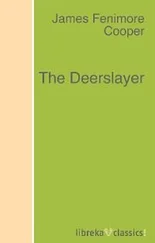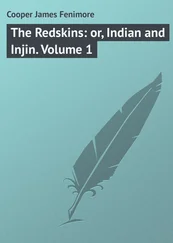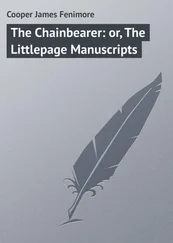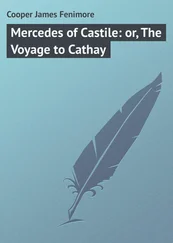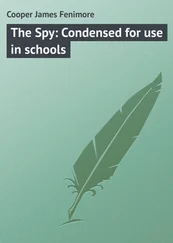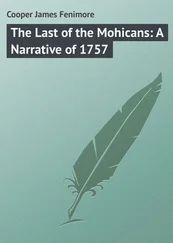1 There existed for a long time a confederation among the Indian tribes which occupied the north-western part of the colony of New York, which was at first known as the ‘Five Nations.’ At a later day it admitted another tribe, when the appellation was changed to that of the ‘Six Nations.’ The original confederation consisted of the Mohawks, the Oneidas, the Senecas, the Cayugas, and the Onondagoes. The sixth tribe was the Tuscaroras. There are remnants of all these people still living on lands secured to them by the State; but they are daily disappearing, either by deaths, or by removals to scenes more congenial to their habits. In a short time there will be no remains of these extraordinary people, in those regions in which they dwelt for centuries, but their names. The State of New York has counties named after all of them but the Mohawks and the Tuscaroras. The second river of that State is called the Mohawk.
1 In the State of Rhode Island there is a bay called Narraganset, so named after a powerful tribe of Indians, which formerly dwelt on its banks. Accident or one of those unaccountable freaks which nature sometimes plays in the animal world, gave rise to a breed of horses which were once well known in America by the name of the Narragansets. They were small, commonly of the colour called sorrel in America, and distinguished by their habit of pacing. Horses of this race were, and are still, in much request as saddle horses, on account of their hardiness and the ease of their movements. As they were also sure of foot, the Narragansets were greatly sought for by females who were obliged to travel over the roots and holes in the ‘new countries.'
Before these fields were shorn and tilled,
Full to the brim our rivers flowed:
The melody of waters filled
The fresh and boundless wood;
And torrents dashed, and rivulets played,
And fountains spouted in the shade.
—Bryant.
Leaving the unsuspecting Heyward and his confiding companions to penetrate still deeper into a forest that contained such treacherous inmates, we must use an author’s privilege, and shift the scene a few miles to the westward of the place where we have last seen them.
On that day, two men were lingering on the banks of a small but rapid stream, within an hour’s journey of the encampment of Webb, like those who awaited the appearance of an absent person, or the approach of some expected event. The vast canopy of woods spread itself to the margin of the river, overhanging the water, and shadowing its dark current with a deeper hue. The rays of the sun were beginning to grow less fierce, and the intense heat of the day was lessened, as the cooler vapours of the springs and fountains rose above their leafy beds, and rested in the atmosphere. Still that breathing silence, which marks the drowsy sultriness of an American landscape in July, pervaded the secluded spot, interrupted only by the low voices of the men, the occasional and lazy tap of a woodpecker, the discordant cry of some gaudy jay, or a swelling on the ear, from the dull roar of a distant waterfall.
These feeble and broken sounds were, however, too familiar to the foresters to draw their attention from the more interesting matter of their dialogue. While one of these loiterers showed the red skin and wild accoutrements of a native of the woods, the other exhibited, through the mask of his rude and nearly savage equipments, the brighter though sun-burnt and long-faded complexion of one who might claim descent from a European parentage. The former was seated on the end of a mossy log, in a posture that permitted him to heighten the effect of his earnest language by the calm but expressive gestures of an Indian engaged in debate. His body, which was nearly naked, presented a terrific emblem of death, drawn in intermingled colours of white and black. 1 His closely shaved head, on which no other hair than the well-known and chivalrous scalping tuft 2 was preserved, was without ornament of any kind, with the exception of a solitary eagle’s plume, that crossed his crown, and depended over the left shoulder. A tomahawk and scalping-knife, of English manufacture were in his girdle; while a short military rifle, of that sort with which the policy of the whites armed their savage allies, lay carelessly across his bare and sinewy knee. The expanded chest, full formed limbs, and grave countenance of this warrior, would denote that he had reached the vigour of his days, though no symptoms of decay appeared to have yet weakened his manhood.
The frame of the white man, judging by such parts as were not concealed by his clothes, was like that of one who had known hardships and exertion from his earliest youth. His person, though muscular, was rather attenuated than full; but every nerve and muscle appeared strung and indurated by unremitted exposure and toil. He wore a hunting-shirt of forest green, fringed with faded yellow, 1 and a summer cap of skins which had been shorn of their fur. He also bore a knife in a girdle of wampum, like that which confined the scanty garments of the Indian, but no tomahawk. His moccasins were ornamented after the gay fashion of the natives, while the only part of his under-dress which appeared below the hunting-frock was a pair of buckskin leggings that laced at the sides, and which were gartered above the knees with the sinews of a deer. A pouch and horn completed his personal accoutrements, though a rifle of great length, 2 which the theory of the more ingenious whites had taught them was the most dangerous of all firearms, leaned against a neighbouring sapling. The eye of the hunter, or scout, whichever he might be, was small, quick, keen and restless, roving while he spoke on every side of him, as if in quest of game, or distrusting the sudden approach of some lurking enemy. Notwithstanding the symptoms of habitual suspicion, his countenance was not only without guile, but at the moment at which he is introduced, it was charged with an expression of sturdy honesty.
‘Even your traditions make the case in my favour, Chingachgook,’ he said, speaking in the tongue which was known to all the natives who formerly inhabited the country between the Hudson and the Potomac, and of which we shall give a free translation for the benefit of the reader; endeavouring, at the same time, to preserve some of the peculiarities, both of the individual and of the language. ‘Your fathers came from the setting sun, crossed the big river, 3 fought the people of the country, and took the land; and mine came from the red sky of the morning, over the salt lake, and did their work much after the fashion that had been set them by yours; then let God judge the matter between us, and friends spare their words!’
‘My fathers fought with the naked red man!’ returned the Indian sternly, in the same language. ‘Is there no difference, Hawkeye, between the stone-headed arrow of the warrior, and the leaden bullet with which you kill?’
‘There is reason in an Indian, though nature has made him with a red skin!’ said the white man, shaking his head like one on whom such an appeal to his justice was not thrown away. For a moment he appeared to be conscious of having the worst of the argument, then, rallying again, he answered the objection of his antagonist in the best manner his limited information would allow.
‘I am no scholar, and I care not who knows it; but judging from what I have seen, at deer chases and squirrel hunts, of the sparks below, I should think a rifle in the hands of their grandfathers was not so dangerous as a hickory-bow and a good flint-head might be, if drawn with Indian judgment, and sent by an Indian eye.’ 1
‘You have the story told by your fathers,’ returned the other, coldly, waving his hand. ‘What say your old men? Do they tell the young warriors that the pale-faces met the red men, painted for war and armed with the stone hatchet and wooden gun?’
Читать дальше
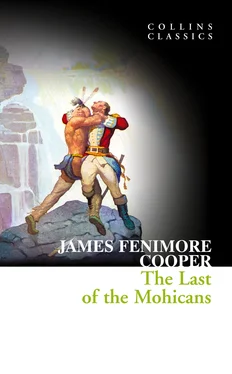

![Джеймс Купер - Последний из могикан, или Повествование о 1757 годе [The Last Of The Mohicans]](/books/397341/dzhejms-kuper-poslednij-iz-mogikan-ili-povestvovan-thumb.webp)
